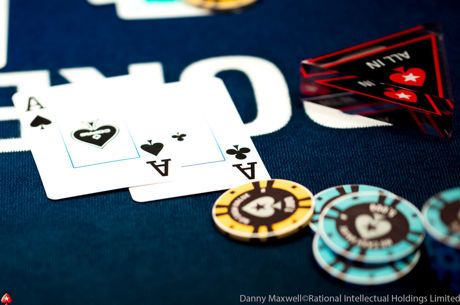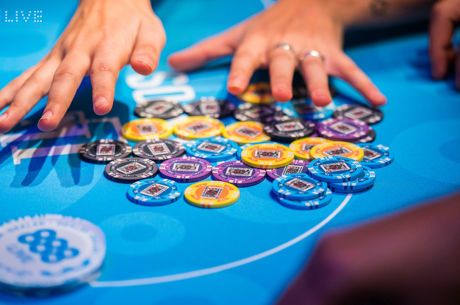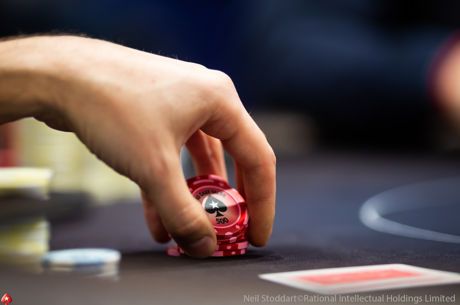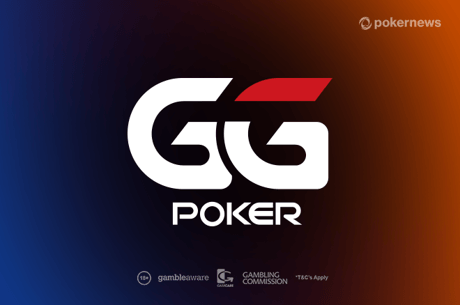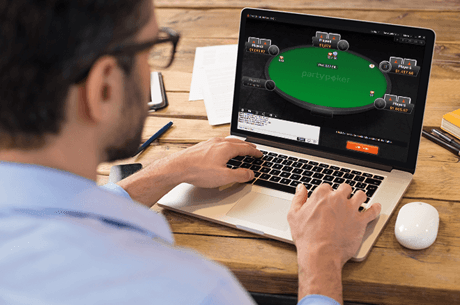Poker Advice: Do You Make These Five Mistakes?
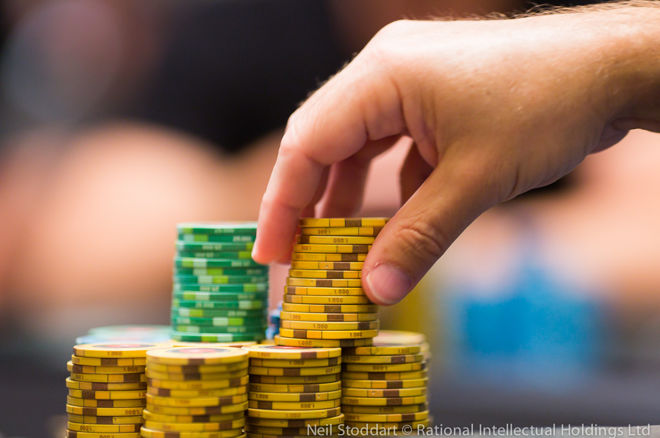
Generally speaking, we improve our poker game by thinking more than the next player about what we are doing at the table.
Our mind is surely our greatest weapon. Even so, some thoughts tend to lead us in the completely wrong direction and should be avoided like a rabid raccoon.
Here are five of those bankroll depleting thoughts. We'll count them down from some hand-specific examples of self-sabotage to bigger, broader blunders caused by bad thinking.
5. "I really can't fold now"
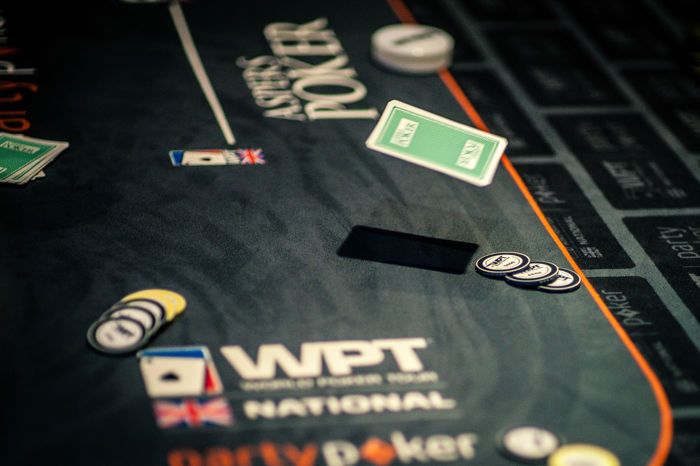
Imagine you've been playing $1/$2 no-limit Texas hold'em for about 45 minutes.
You have gotten few if any hands to play during that time, folding nearly all your hands preflop, and have a couple of hundred bucks left in your stack when you are dealt K?10? in middle position.
Three or four players call the $2 blind before the action gets to you.
You figure you've got to do something to avoid further cementing your rocky image that will kill any chance of action if you really hit a big hand in this fairly loose-passive game.
Even though it isn't up to your typical poker starting hands standards from this position, you make it $12 to go.
Surprisingly, though you know your image is very tight due to all of that preflop folding you've been doing, the apparently non-tricky guy on the button raises to $30. It's folded back around to you.
Your immediate impulse is to fold, recognizing that based on your image the button probably is playing a range that could easily have your hand dominated (AxAx through 10x10x, AxKx, AxQx, KxQx).
He also has position on you. But then you think that since you initiated the action and don't want to look like a wimp by backing down from a fight, you really can't fold now.
And so you call.
The thought that you "can't" fold is wrong �� very wrong �� because you allowed your ego to trump your better judgment.
While it's true that your image at the table is a legitimate consideration, "looking like a wimp" is not a legitimate reason to avoid a fold.
Though it is easy to embrace the more appealing action rather than the logical one, you should discard the stack crippling thought pushing you to call.
Recognize that you surely can fold, even if you initiated the action �� and save your money for the next contest.
4. "He's probably bluffing"
Yes, of course there's bluffing in poker. You can win a lot of money by calling down a player when he doesn't have what he is representing.
But all too often, especially in poker home games online and in the relatively low-stakes public poker room games that most of us play, your opponent's aggressive action indicates a genuinely strong hand.
Even so, many players cannot avoid being convinced by the thought their opponent is bluffing, even when all rational considerations would otherwise dictate a fold.
In general, players want to play, so they tend to look for excuses for doing so, even when their better judgment tells them to fold.
True, there are surely times when your opponent is bluffing and a call makes sense. But guard against the seductive thought that your opponent may be bluffing, just so you can have an excuse to call someone down when you really know you should fold.
READ ALSO: Do You Know How Often You Should Get Dealt Aces?
3. "I have to bet here"
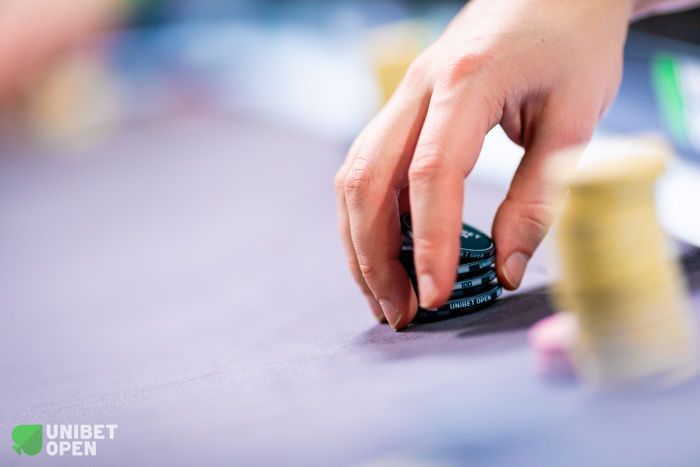
In general, aggression at the table is a good thing. But players err when they give in to the thought that a bet is automatically demanded in some situations.
Here's an example.
You're under the gun in a loose and passive home game ($1/$2 NL). You have a 4?4? and call, hoping no one raises too much so you can "set mine" inexpensively.
Fortunately, three more players call behind you, the small blind flings in the extra buck, and the big blind checks.
The flop misses your pair of fours completely, coming 9?5?2?. The blinds check.
Though you have nothing, you have a reputation as an aggressive player, and you think that you must bet here in order to maintain that image.
So you bet $12. Everyone folds except the fairly loose player on the button.
The turn is the A?.
Now you think that you must bet again so your opponent doesn't try to run you off the hand if you check, so you bet $30. Your loose opponent calls you once again. Finally, when the 9? hits on the river, you figure you must show strength again in order to win and so you shove �� and lose to a smiling guy calling you with a weak ace.
Recognize what the problem really was here.
It wasn't necessarily that you shouldn't have bet, even though it's hard to find much of a legitimate reason for doing so as a bluff against a player whom you know to be loose.
The problem wasn't necessarily in what you did but why you did it. You didn't have to bet.
You probably should have checked and folded to a bet. But the thought that you needed to bet to show strength sabotaged your better judgment, losing you your stack in the process.
NEED HELP? Check out the all-new poker odds calculator!
2. "I'm already stuck, what's another few bucks?"
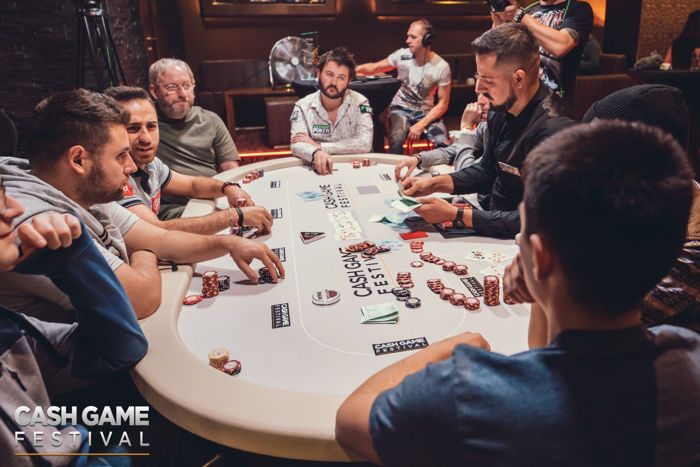
Moving over to more general thoughts that can lose us chips, this one can be really devastating.
A $300 stack can be crippled just as effectively with 10 thoughtless calls costing $30 each as with one bad call worth all $300.
It doesn't matter if you're already down $200 or up $500 �� a bad call is still a bad call, whether you're ahead or behind.
If you are starting to think that losing a little more doesn't really matter, then it's time to walk away from the table.
And this doesn't apply only to poker. If you play other casino games like roulette or online blackjack, you need to apply the same logic and understand when it's time to take a break or stop.
TRY THESE TIPS! Free Texas Hold'Em Practice Online
1. "I've just got to get back to even before I leave"
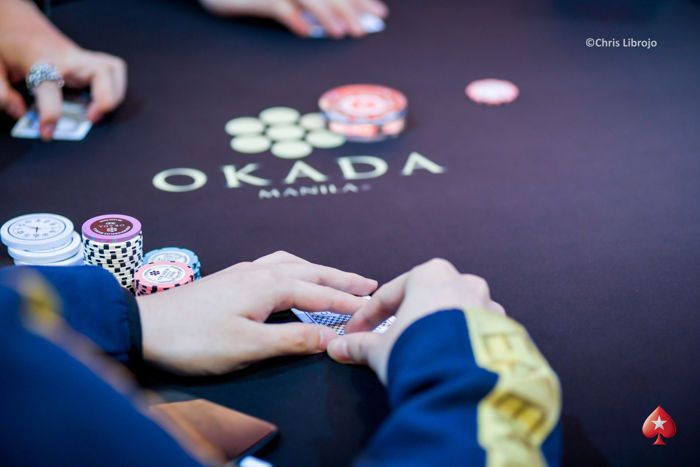
This thought is the worst of the bunch. Unlike the others, it has zero redeeming qualities and is always wrongheaded. Sadly, it's very common.
While being in the red may not be an indication of how you are playing �� and while you might be able to "leave a winner" by staying longer �� it is much more likely that if you are down your game is not at its best and that you should pack it in, not stick around.
Think about it. If you've been on an online poker site or an online casino long enough to start thinking about "getting back to even," chances are you've been playing there for a while.
You're probably tired and your play has probably degraded, even if you don't recognize it yet.
Thinking you just need to get back to even could well presage a poker death spiral. The longer you stay to get even, the more tired you get.
The more tired you get, the worse you play. The worse you play, the more you lose.
The more you lose, the greater the hurdle to get back to even and the longer you have to stay to achieve your dubious goal.
The only sure time to leave when you are "stuck" like this is when you lose your playing bankroll or, even worse, go broke entirely, emptying your wallet, maxing out your credit cards, and withdrawing funds from your ATM. A poker death spiral, indeed!
Conclusion
The antidote to these bankroll crushing thoughts is, ironically, to think about them! That is to say, to become conscious that they've come to mind, and thus be better equipped to combat their negative effects when they do.
Consider them carefully and commit them to memory before your next playing session.
By recognizing them in advance, you'll be better able to avoid them and hold them at bay if they start seeping into your poker game and sabotaging your play.
About the Author
Ashley Adams has been playing poker for 50 years and writing about it since 2000. He is the author of hundreds of articles and two books, Winning 7-Card Stud (Kensington 2003) and Winning No-Limit Hold'em (Lighthouse 2012). He is also the host of poker radio show House of Cards.

